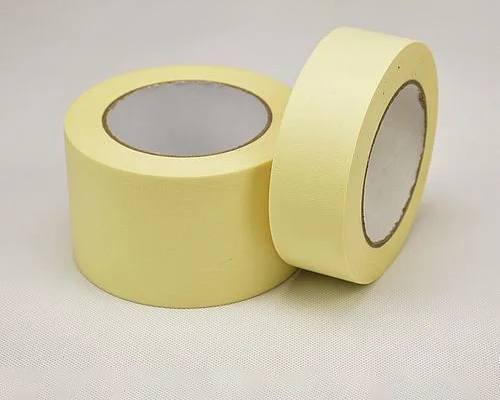Masking tape is made of crepe paper and pressure-sensitive glue, that is, the adhesive of pressure-sensitive adhesive is applied to the back of the crepe paper, and the anti-corrosion material is applied to the other side to make the tape. Masking tape has the characteristics of high temperature resistance, high adhesion, softness and no residue. So, what should be paid attention to in the process of use? Do you need to choose different types according to different applications? The following is a brief introduction for you.

Classification of masking tape
1. Masking tape can be divided into normal temperature, medium temperature and high temperature masking tape according to different high temperature resistant temperatures.
2. According to the different viscosity, it can be divided into low-viscosity, medium-viscosity and high-viscosity masking tape.
3. You can also choose according to the color. Generally, it can be divided into natural color and color masking tape.
2. Common specifications of masking tape
1. The length of masking tape is generally 10Y-50Y.
2. The total thickness of the textured paper is 0.145mm-0.180mm
3. The width can be freely cut according to the needs. The commonly used widths are 6MM, 9MM, 12MM, 15MM, 24MM, 36MM, 45MM and 48MM. Also supports jumbo roll sales.
4. The packaging is mostly packed in carton boxes, and packaging methods such as color boxes, POF heat shrinking + color cards, etc. can also be customized according to requirements.
The scope of use of masking tape
Masking tape is mainly made of imported white crepe paper as the basic raw material, and a pressure-sensitive adhesive with strong weather resistance is applied on one side. It is used more in high temperature and solvent environments, peeling off without residual glue, and meeting the environmental protection requirements of rohs. It plays a major role in the application process of automobile spray painting, baking paint coating and masking, the electronics industry, and the wire industry (into the tin furnace, strong gripping force). At the same time, it is widely used in electronic components, circuit boards and electrical appliances.
Post time: Oct-07-2023





